Over twenty years of battling weight issues can wear down anyone’s spirit. For me, the decision to undergo weight loss surgery in Mexico was not just a health choice but a resilient step towards reclaiming control over my body and my life.
I had gastric sleeve surgery in Tijuana, Mexico, back in September 2020. I was at the highest weight of my life (230 pounds). The constant pain I was in was also becoming an issue.
Having gastric sleeve surgery not only helped me lose weight but was part of a several-year period of self-growth and discovery.

My First Encounter With Someone Who Had Bariatric Surgery
The idea of surgery abroad was sparked by an inspiring encounter in an unlikely place: a bridal store. Managing the store, I met a customer whose recent weight loss surgery in Mexico transformed her so much that she needed her wedding dress sized down—twice.
When she had first ordered her dress she was insistent that we do it a size smaller. That is normally something we discourage, as we can always make things smaller but not larger.
However, she was right, and the smile on her face when that dress swam on her was priceless and will forever be etched in my memory.
Her story wasn’t just about physical transformation and overcoming challenges with grace and determination. I started asking her about what she had done, and she explained all about how she went to a weight loss clinic in Mexico and how great the experience was.
This interaction reignited my resolve to take control of my health. I began looking into having the procedure done locally, as I had exceptional health insurance.
However, even with that, it was going to be six months of all kinds of other appointments. The gastric sleeve surgery cost in the States, with insurance, was still about $10,000 out of pocket.
A Lifelong Struggle With Weight Loss
From my teenage years as a competitive swimmer, I battled with a distorted body image. Despite being in excellent physical condition, I always felt like the “biggest” girl on the team—a label that stuck and deeply affected my self-esteem.
I was beautiful, but like so many other teenage girls, I thought I was “fat.” All the other girls were in size 22–24 swimsuits, and mine was the biggest on the team at size 28. Being the biggest is a prize no teenage girl wants to win.
A family background fraught with neglect, emotional and physical abuse, and abandonment compounded this self-perception.
When I graduated and went to college, I piled on the “Freshman 15” fast. Suddenly, the scale was hovering near 150. I always thought, “If I ever cross that threshold, I will start swimming again and eating better.”
I was an athlete; I knew how to be fit and eat right.
There Was More I Needed to Learn
What I didn’t know at this young age was that depression, life events, hormones, and genetics would play an enormous part in my weight loss journey.
My mom, who I hadn’t lived with since kindergarten, died in a car wreck six months after I moved in with her to start college.

Next, my boyfriend broke up with me. I moved across the country to live with the father whose face I couldn’t remember because it had been that long since I had seen him.
Did I mention I am also Italian? My newly discovered family in New York was like ‘New York Italian.’ We eat for comfort. An amazing pastry solves stress. We eat out of boredom. We eat out of anger. Hell, we eat because everything we make tastes amazing…
My father told me I was gaining weight and needed to watch it. He was also an overweight man, and it felt a little hypocritical. He would yell at my newfound eight-year-old sister about her weight and say things like, “Do you need that donut?”
This made her and I both anxious…
Guess what my newfound sister and I had in common… we both like to eat our anxiety, too.
Facing Genetics and Health Challenges: Common Barriers to Weight Loss
I eventually left New York and got back together with my boyfriend. We got married when I was 19, and I had my first baby at 20.
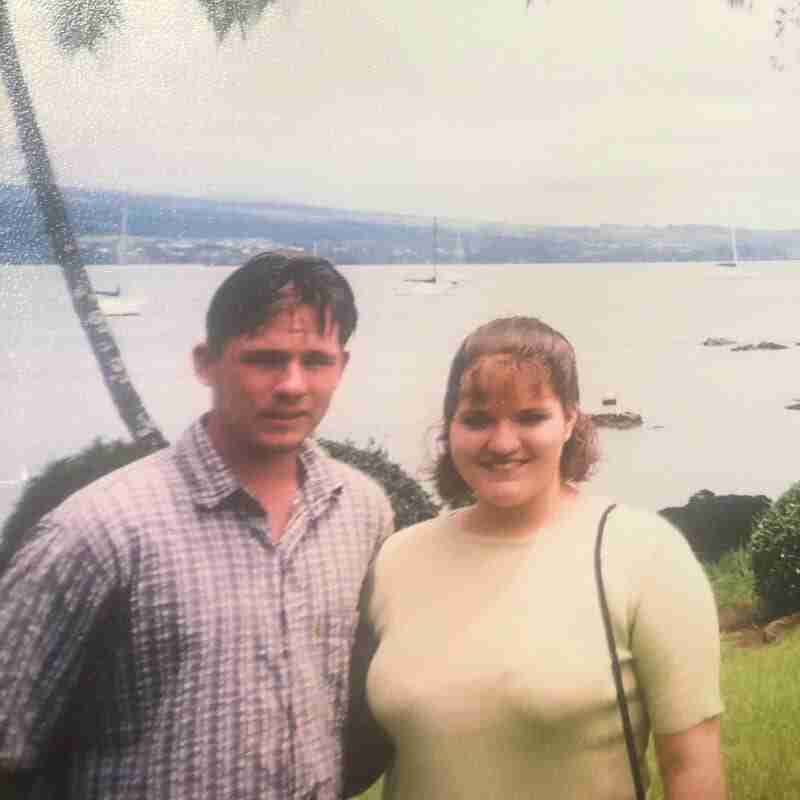
Of course, I gained excess weight. Our second child was born when I was 25. During his pregnancy, I was diagnosed with gestational diabetes.
Life kept moving on. Each attempt at dieting or a new fitness regime ended in frustration and further weight gain, deepening my despair over weight loss goals but also forging a growing resolve within me.
My battle with weight was complicated by a diagnosis of PCOS, which affects metabolism and heightens the struggle with weight because of insulin resistance.
The weight seemed determined to stay despite my best efforts, a testament to the invisible battles many face with their health.
According to Angela Grassi, MS, RDN, LDN, “PCOS affects your body’s secretion and use of insulin. Your cells become resistant to insulin signals, and this prompts your pancreas to produce even more insulin.” Insulin also makes you hungrier.
There is no cure for PCOS, but do you know what usually alleviates the symptoms? Rapid weight loss.
Hereditary Factors
I had aunts on my father’s side who weighed over 400 pounds. My father was also overweight and had heart problems that started in his 40s.
One month after his 50th birthday, he had a massive heart attack on the lawn, blowing out the two stents in his heart, and ultimately died from drowning in his blood.
My grandmother on my mom’s side has also been overweight her entire life. She has had diabetes for years now. Every meal she eats is accompanied by a shot of insulin in her stomach. She is bruised all over from the repetitive injections.
I did not want to die at 50 from a heart attack. I am terrified of needles and can not live the rest of my life dependent on insulin. Trying diet and exercise for the umpteenth time was an option, but each time I tried that, I always ended up disappointed.
Then, I gained back whatever weight loss I managed to achieve.
The thing about resilience is that is more than overcoming. It’s about adapting and finding new ways to fight back. For me, that meant considering options I’d never thought possible—including bariatric surgery in Mexico.
I did not take this lightly. I had never been under anesthesia before and am absolutely terrified of needles. However, right around the same time, my friend was also contemplating having weight loss surgery in Mexico.
She started to try to convince me that we should have our weight loss surgeries at the same time.
What is Vertical Sleeve Gastrectomy (VSG)?
Vertical sleeve gastrectomy (VSG) is a type of bariatric surgery that involves removing approximately 80% of the stomach, leaving a tube-shaped stomach about the size of a banana.
This significantly restricts the amount of food one can eat, but more importantly, it affects gut hormones that impact hunger, satiety, and blood sugar control, which is crucial for those with conditions like PCOS.
The Decision to Undergo Gastric Sleeve Surgery in Mexico
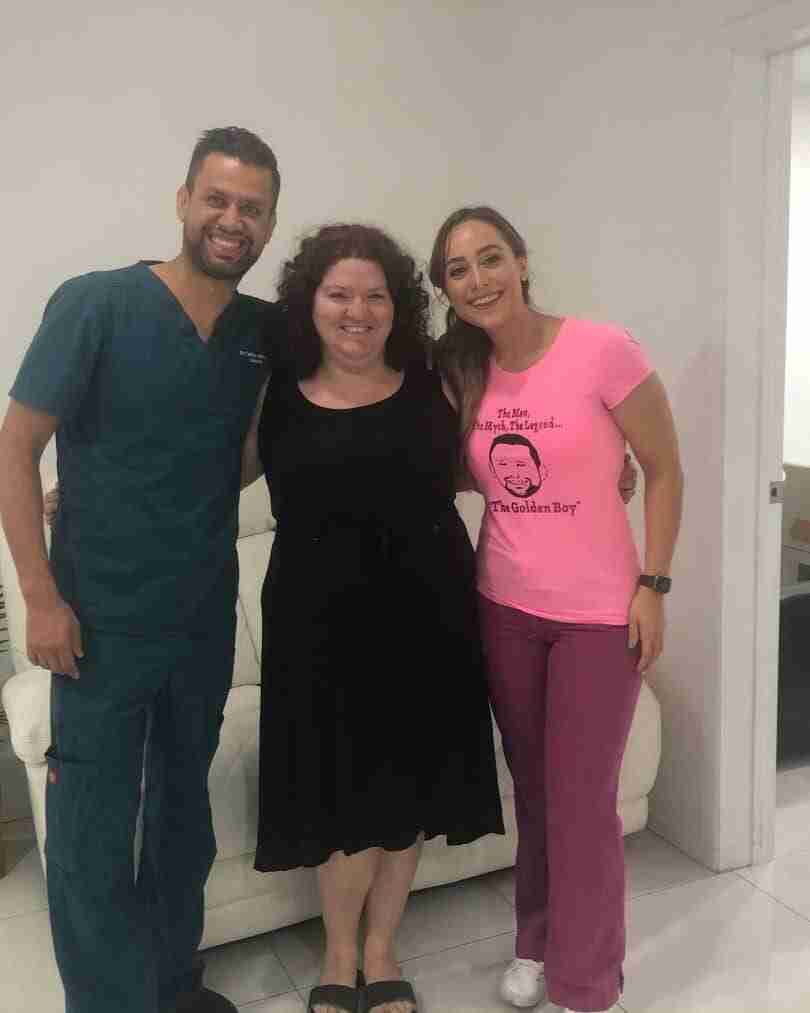
Initially hesitant because of the daunting thought of surgery and a profound fear of needles, my perspective shifted when I accompanied my friend to Mexico for her gastric sleeve surgery.
At the time, she couldn’t convince me to have bariatric surgery myself, but I went as her companion to support her.
We flew from Salt Lake City, Utah, to the San Diego International Airport, where we were picked up by transportation from the bariatric surgery clinic. Medical tourism is quite popular, and they even have special lanes at the border for it.
Witnessing her process, the excellent care she received, and the supportive community she had access to moved me to take the plunge myself.
Seeing the facility firsthand, meeting the staff, and learning about their streamlined process and supportive care alleviated many of my fears.
The clinic’s focus on this specific surgery and its warm, welcoming approach showed me that this journey was not just about losing weight, but about gaining a community and support system.
It was just a few short months later that my friend and I returned to Mexico so Dr. Carlos Galindo (the Golden Boy of Pompeii) could perform my gastric sleeve surgery in Mexico.
What to Look for in a Clinic
I had the luxury of going to this clinic once before and experiencing everything from the aesthetic to the nursing staff, and meeting several of the bariatric surgeons.
Weight loss surgery in Mexico or any other country is not without risk. You want to do your due diligence.
Choosing the right clinic for weight loss surgery abroad is critical. Key factors include:
Accreditation: Ensure the clinic meets international standards for healthcare. Your bariatric surgeon should be board-certified.
Specialization: Look for clinics that specialize in performing bariatric surgery, as they will have the most experience. The clinic I chose does several bariatric procedures, including gastric bypass surgery, duodenal switch surgery, and others.
Reviews and Testimonials: Research other patients’ experiences with their weight loss surgery to gauge the quality of care and the outcomes they achieved.
Post-Op Support: Check if the clinic offers comprehensive follow-up care, including dietary counseling and mental health support.

Post-Gastric Sleeve Surgery: A New Chapter
The gastric sleeve surgery was just the beginning of a new chapter in my life. Prior to surgery in Mexico, I started therapy. I also reevaluated the career path I had been traveling and rediscovered my passion for telling stories.
My first foray into the world of writing involved walking around the lake near my house for nearly a year. I thought I was going to create a coffee-table book full of insights and beautiful photos.
Instead, I ended up working full-time for a publication in my dream role of managing editor.
Now, nearly four years later, having maintained a significant weight loss of about 90 pounds, I have faced new challenges. Just recently, I was laid off from my dream job and am three months tobacco-free as of 04/22/24!
In response to losing my job, I started my own business. Being an entrepreneur is incredibly stressful, and my line of work is sedentary. I am sitting a lot more now than I have over the last 4 years because I am working nearly 12-14 hours a day.
Yet, another unhealthy habit I need to watch!
Each challenge has tested my resilience, pushing me to apply the lessons learned from my surgery experience—discipline, self-care, and community support—to other areas of my life.
The recent weight gain after these stressors is a bump in the road, not the end of my journey. It serves as a reminder that resilience is about bouncing back, even when things don’t go as planned.
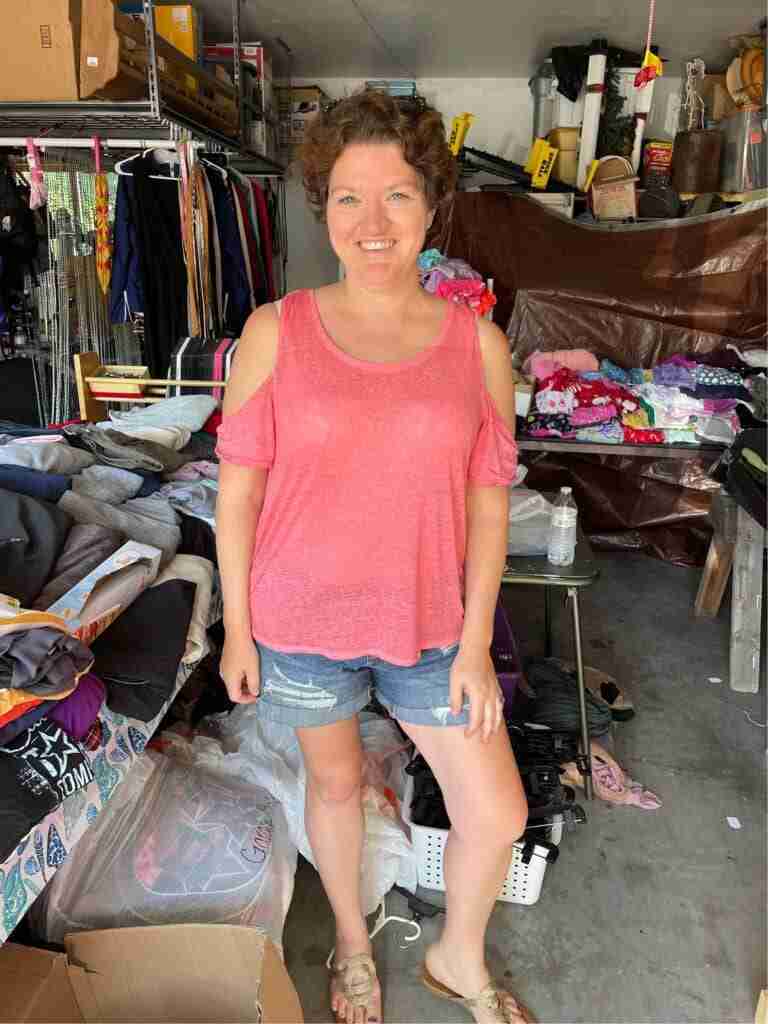
Affordable Weight Loss Surgery in Mexico Was Only Part of the Answer
My journey to and through weight loss surgery is a testament to resilience. It’s about facing life’s challenges head-on and finding strength in vulnerability.
My life has never been what one would consider easy. In fact, many times, it has been downright challenging. However, I believe that this opportunity for life-changing weight loss is partially responsible for the path I am on now.
And as difficult as life is at times, I am doing something I love. I have healthy relationships with my spouse, children, family members, and friends. Therapy, weight loss surgery in Mexico, practicing mindfulness, and investing in myself have been integral to getting to this moment.
As I continue to navigate this path, I am reminded daily of my strength and the importance of maintaining hope and perseverance. Many gastric sleeve patients gain weight back for a variety of reasons.
However, I am committed to my successful weight loss journey. I would rather not have any further rounds of bariatric surgeries. I might consider skin removal surgery in Mexico at some point.
This story isn’t just about weight loss—it’s about learning to rise, time and again, fortified by each fall and ready to face whatever comes next with renewed strength and determination.


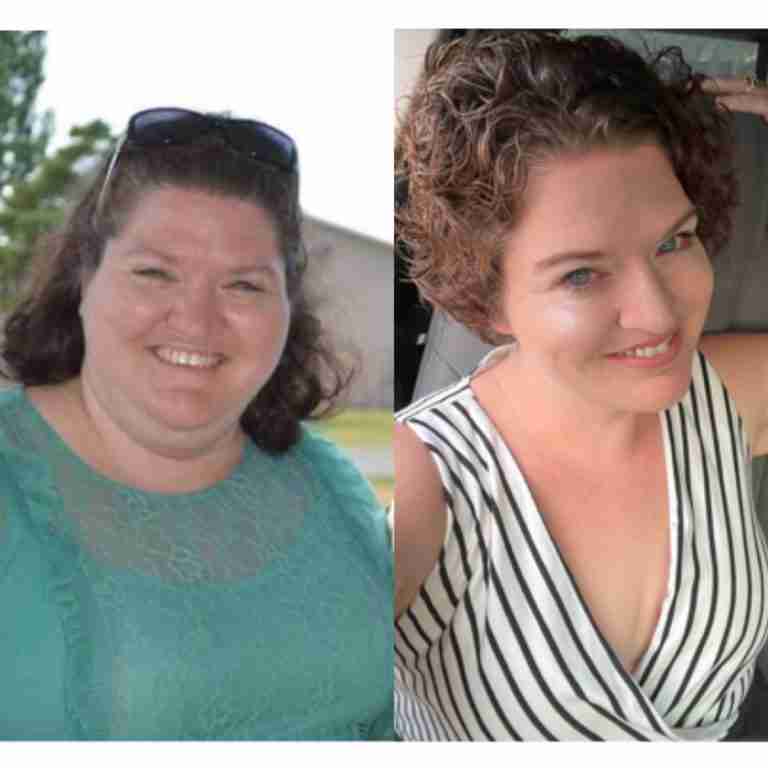

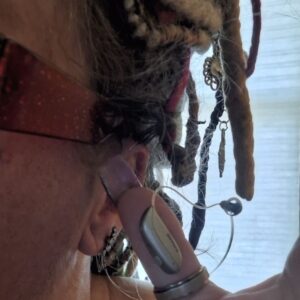
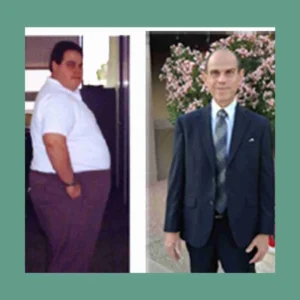






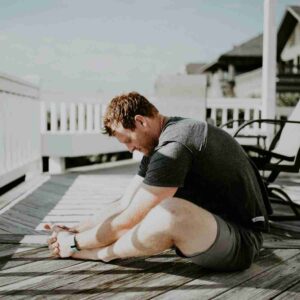

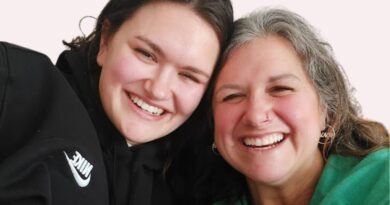
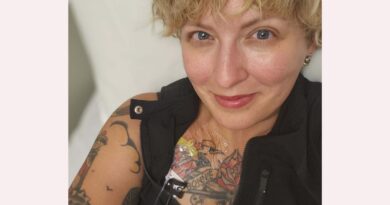













You’re such a badass! You tell this story with such eloquence and vulnerability. Thanks for sharing your inspiring journey.
Thank you!